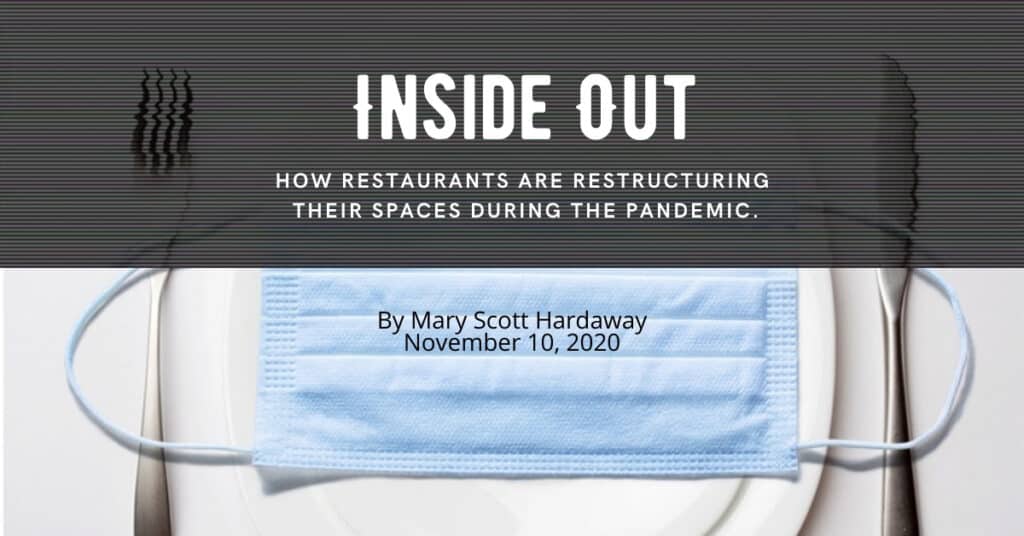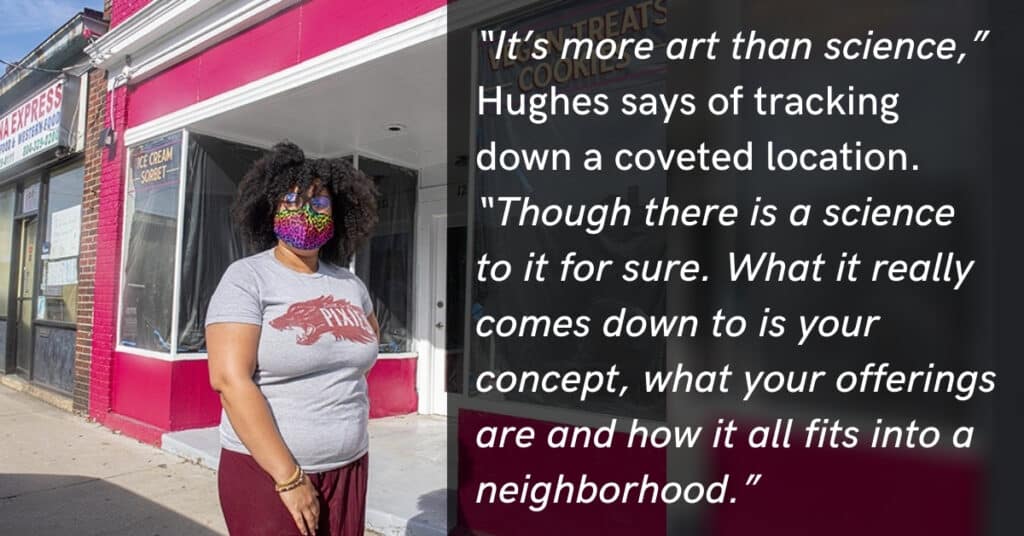Click to read the full article here.
Restaurateurs with big dreams and tight budgets have long lived by British real estate tycoon Harold Samuel’s adage: location, location, location. More often than not, much like the homes we invest in, the physical structure of an eatery and the address we plug into our phones are part and parcel with the identity of the restaurant itself.
“I have so many fond memories of ice cream as a child and nostalgia with my family – it was important to be somewhere with families and make connections and know all the neighbors and become the neighborhood scoop shop,” says Ruby Scoops owner Rabia Kamara. “I kept finding myself back in Brookland Park.”
Kamara and business partner Emmett Wright were hoping to open their first brick and mortar in the spring in a 2,400-square-foot blank slate, set conveniently on a corner and falling within their budget, ready to be built out to the owners’ liking.
“This has been a big test and lesson in trust,” Kamara says. “I’ve helped open a lot of restaurants – I was not prepared for what opening my own situation would entail.”
The pastry chef started Ruby Scoops in October 2014 as an online retailer, popping up at Washington area markets and festivals. In that time, she’s built a devout following of her small-batch ice cream and sorbet. “This is the longest time in five years I’ve not been selling ice cream to people,” Kamara says.
The contract for Ruby Scoop’s 300 W. Brookland Park Blvd. location started to fall through this spring, and “broke down even further,” this summer, Kamara says. “It was very unclear about what the delivery date would be.” On July 27, Kamara posted photos to the Ruby Scoops’ Instagram page of a building very much in disarray, writing that it was no longer moving forward with 300 W. Brookland.
With time and money already sunk in the original space, Kamara and Wright launched a Kickstarter to help them pursue the reality of a hard-earned storefront. More than 500 backers raised $32,191 for the team to invest in their new address, 120 W. Brookland Park, which is just 500 feet from the original and is set to open this winter. “Our Realtors knew we wanted to stay in the same area,” Kamara says.
Nathan Hughes, principal broker at Sperity Real Estate Ventures, assisted Kamara and Wright in the search for their ideal scoop-shop location. Hughes has been a full-time business broker and commercial Realtor for 15 years, specializing in the inner workings of the Richmond restaurant market.
“It’s more art than science,” Hughes says of tracking down a coveted location. “Though there is a science to it for sure. What it really comes down to is your concept, what your offerings are and how it all fits into a neighborhood.”
There are still hot spots like the bustling, beer-centric Scott’s Addition district. Or the recreational and residential friendly Manchester, where Richmond’s first food hall, Hatch Local, is slated to open in the spring.
But there is no new restaurant algorithm that will guarantee success in any neighborhood. No magic button that draws a constant stream of patrons.
And even if you’re longing for a trendy locale, sometimes money won’t buy you what you love. For instance, Hughes says Scott’s Addition is difficult to get into, not because existing real estate prices are “insane,” but because there’s no “second- generation space,” and it’s very expensive to remodel.
In spite of the pandemic – and in the midst of more than two dozen area restaurants permanently closing since March – Hughes says he currently has about 15 to 20 businesses looking for storefronts.
“For the most part they’re all looking for something smaller, around 1,000-2,000 square feet,” Hughes says. “A lot have a market component and most are focused more on takeout and outdoor space.”


